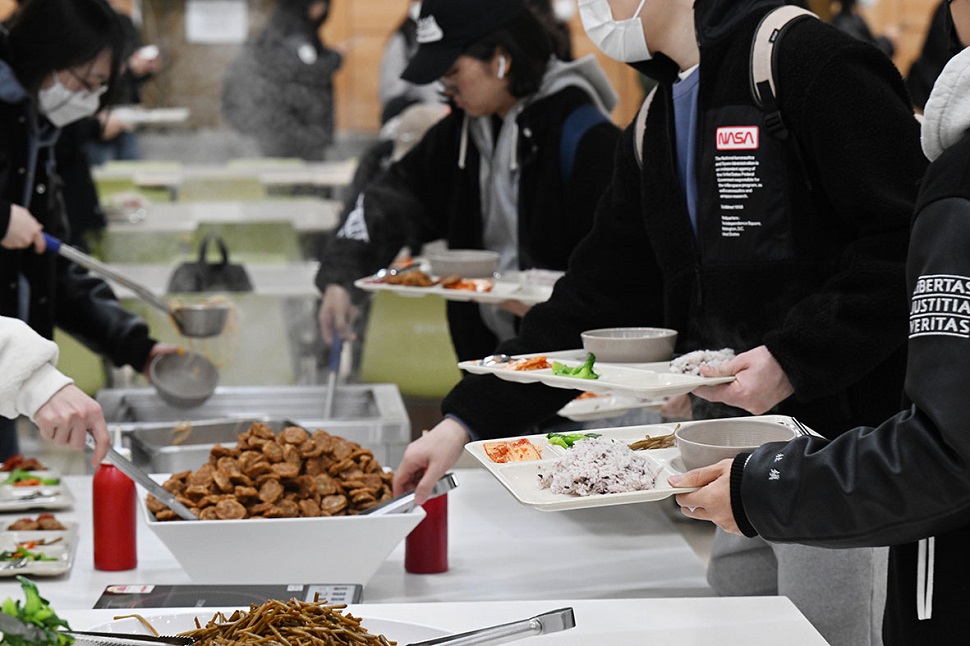[May] “1,000 Won Breakfast” grows popular among college students
Date May 18, 2023
 Trays loaded with the “1,000 Won Breakfast” at a Korea University student cafeteria on March 29, 2023. (Korea Times photo)
Trays loaded with the “1,000 Won Breakfast” at a Korea University student cafeteria on March 29, 2023. (Korea Times photo)
Who could possibly contest the health benefits of breakfast? Yet in this ultra-modern age, a growing number of people in Korea are opting to skip it. The trend is more visible among young adults; a 2021 government report showed 53 percent of Korean college students skip breakfast. Demanding academic requirements and rising living costs are among the main reasons.
A new program dubbed “1,000 Won Breakfast” is spreading at local colleges and universities and trying to reverse this trend among young adults
The gist of the scheme is for the government to cover 1,000 won ($0.77), while the students pay 1,000 won and the schools cover the rest of the cost for a hot meal. Usually the breakfast consists of rice, hot soup and side dishes. Other menu items like “cup-bap” (rice served in cups), sandwiches and/or noodles are also available. A similar meal in Korea would normally cost around 4,500 won.
Since March this year, 690,000 students at 41 colleges in the nation have benefited from the affordable breakfasts. With its popularity on the rise, the Ministry of Agriculture, Food and Rural Affairs and the Ministry of Education received applications from a second batch of schools hoping to qualify for this year’s 1,000 Won Breakfast plan.
On May 7, the government announced that all 104 colleges that had applied during the second round have been approved. In total, it means 2.34 million students at 145 universities and colleges will have access to affordable breakfasts this year. It is a far bigger number than the original goal of expanding the meals to 1.5 million university students from the current 690,000 students.
The government has even allowed schools to use state funds allocated to universities to provide their students nutritious breakfasts.
Free meals at public schools are popular and are relatively common in Korea, with public elementary, middle and high schools offering free lunches. Breakfast for 1,000 won, however, started back in 2012 at Sunchunhyang University. Then the government began administering the program with colleges that signed up in 2017. Universities and colleges that offer only online or night classes, however, are not eligible.
The breakfast program is also intended to help boost rice consumption. Rice output since the 1950-1953 Korean War began peaking around the late 1970s. As of 2021, rice output stood at 3.88 million tons annually, resulting in an oversupply of around 150,000 tons.
“The Ministry of Agriculture, Food and Rural Affairs is doing everything in its power to secure financing and cooperation from local governments so that more college students will be able to have breakfast for 1,000 won,” said Vice Minister Kim In-joong.

The Ministry of Culture, Sports and Tourism's "Korea Here & Now" work can be used under the condition of "Public Nuri Type 1 (Source Indication)."




